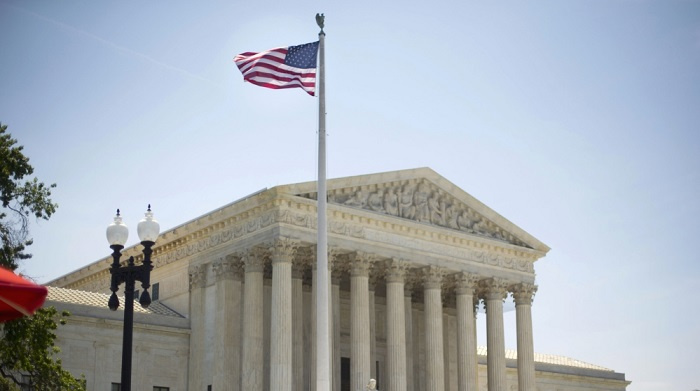Political Judgment in Judicial Guise

The US Supreme Court has ruled that almost $2 billion of Tehran’s frozen assets must be turned over to American families of people killed in the 1983 bombing of a U.S. Marine Corps barracks in Beirut and other attacks blamed on Iran.
The court's 6-2 ruling on Wednesday comes as a final blow to the Iranian Central Bank’s petition, arguing the U.S. Congress had usurped the authority of American courts by passing a 2012 law stating that the frozen funds should go toward satisfying a $2.65 billion judgment won by the families against Iran in U.S. federal court in 2007.
Bank Markazi had challenged a 2014 ruling by the New York-based second U.S. Circuit Court of Appeals that the assets should be handed over to the more than 1,000 American plaintiffs.
Iran’s argument, desperate in a politically driven system, was not based on its denial of any involvement in the bombing but on legal proceedings within the very one-sided judicial system. However, it had seen endorsements from American legal scholars too. A group of law professors had urged the U.S. Supreme Court in December 2015 to side with Iran's Central Bank, saying a Second Circuit decision against the bank set a concerning precedent that encroached on judicial independence, according to Law 360. Though sympathetic to the victims’ families, five law professors wrote in an amici curaie brief that the families’ arguments relied on a law narrowly written to apply to the case. The law amounted to a legislative effort to influence the outcome of a specific case, violating the separation of powers laid out by the Constitution, the law professors wrote.
The plaintiffs accused Iran of providing material support to Hezbollah held responsible for the 1983 truck bomb attack at the Marine compound in Beirut that killed 241 U.S. service members. They also sought compensation related to other attacks including the 1996 Khobar Towers truck bombing in Saudi Arabia that killed 19 U.S. service members.
After lobbying by the families, the Obama administration, the US Senate, and a legal group representing leaders of the House of Representatives had all filed court papers backing the families.
The ruling has now sparked another round of legal controversy inside the United States. Chief Justice John Roberts, a conservative, criticized the ruling, saying Congress was “commandeering the courts to make a political judgment look like a judicial one.” Liberal Justice Sonia Sotomayor joined his dissent.
As for Iran’s response, foreign policy leaders have univocally condemned the ruling. IRNA quoted Iran’s foreign ministry spokesman Hossein Jaberi Ansari as saying on Thursday that “such a verdict amounts to appropriation of the Islamic Republic of Iran’s property”.
Ansari, who spoke to IRNA from the United Nations headquarters in New York, said Wednesday’s ruling is “tantamount to ridiculing justice and [international] law and it does not create any right for the US nationals”.
Jaberi Ansari noted that the US government should compensate for any damages inflicted on Iran because of the ruling. He further warned that such moves increase the distrust between Tehran and Washington.
In similar remarks made on Thursday in New York, Iran’s FM Mohammad-Javad Zarif also slammed the move. “We do not recognize the court’s ruling and the US government knows this well,” PressTV quoted him as saying. “The US knows this too that whatever action it takes with respect to Iran’s assets will make it accountable in the future and it should return these assets to Iran,” he added.
Head of Iran’s Foreign Ministry Headquarters to Monitor the Joint Comprehensive Plan of Action (JCPOA) Abbas Araqchi also labeled the ruling a case of ‘international robbery’. ‘The move is in violation of international law,” he told IRNA in a separate interview while noting that Tehran will consider the US administration accountable to compensate damages to Iran.
Skeptic principlist newspapers in Iran are once again using the anti-Iran verdict as a pretext to attack the Rouhani administration’s foreign policy and, in particular, the nuclear deal reached between Iran and the world powers. Javan daily has published an article, titled “increased threats and void of national bios and religious honor”, rapping the administration for its failure to respond proportionally as it has given too much authentication to the JCPOA, while neglecting regional threats. Kayhan associates the US Supreme Court’s ruling that allows confiscation of Iran’s recently unfrozen assets with the nuclear deal, describing it ironically as “the most recent opening caused by the JCPOA”, referring to Rouhani’s insistence that the accord will bring tangible economic reliefs when fully implemented.

